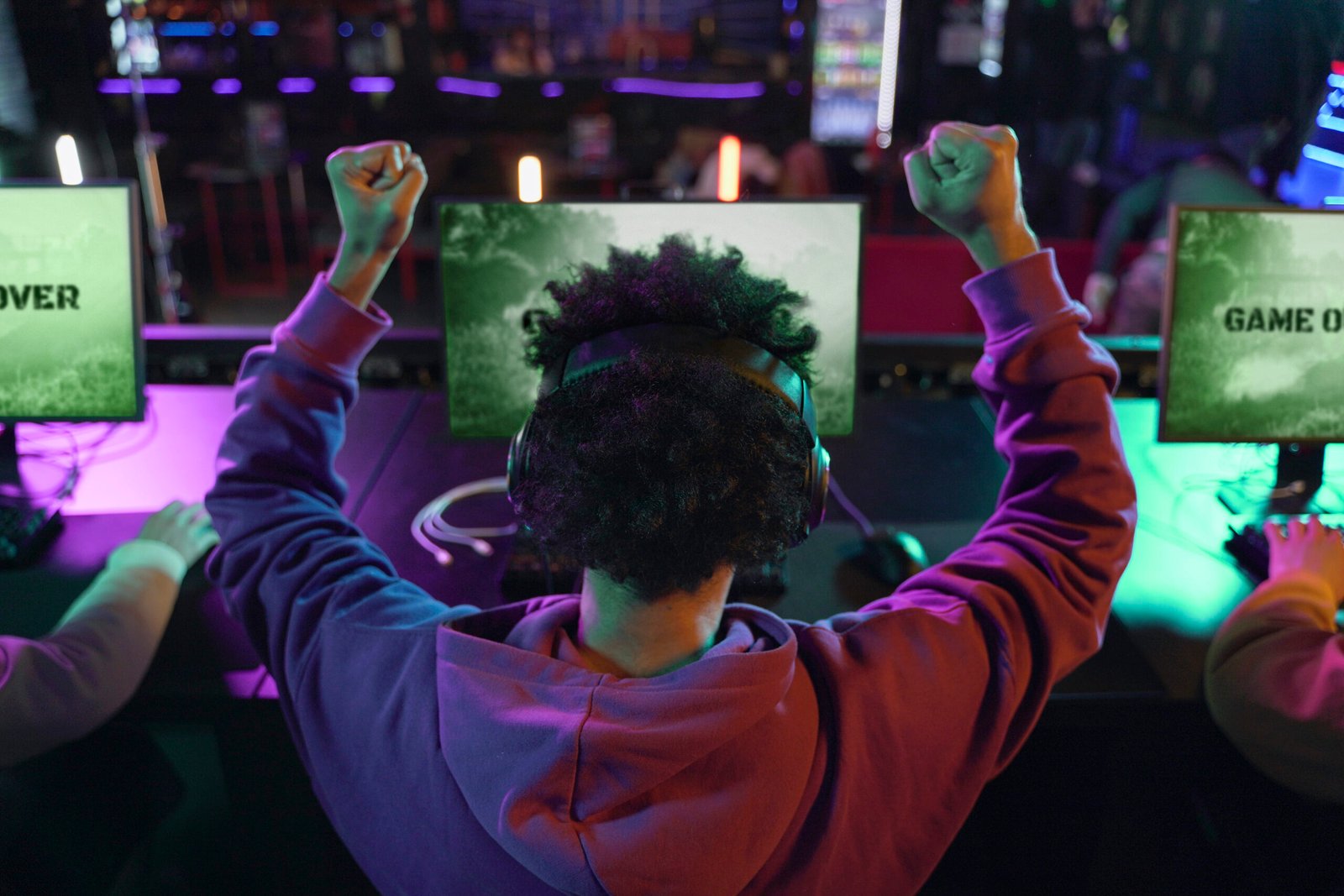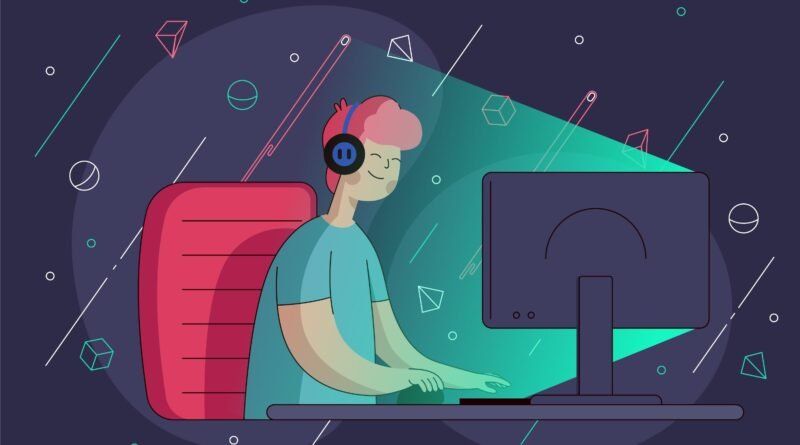Esports: Passion or Addiction Myth
Esports, the competitive video game scene, has exploded in popularity in recent years. Millions tune in to watch professional gamers compete for glory and hefty prize pools. However, alongside this growth comes a growing concern: is esports addiction or a legitimate professional avenue?
This blog post aims to delve into this debate, exploring the potential pitfalls and undeniable benefits of esports participation. We’ll separate the myths from the realities and explore how esports can be a positive force in the lives of young gamers.

The Allure of the Arena: Why Esports Captures Attention
Esports offers a unique blend of factors that contribute to its captivating nature:
- Intense Competition: Witnessing high-level esports matches is akin to watching professional athletes compete. The strategic depth, lightning-fast reflexes, and teamwork on display are genuinely impressive.
- Accessibility and Familiarity: Unlike traditional sports, esports features games many viewers already play or at least understand. This familiarity lowers the barrier to entry, fostering a strong connection between players and viewers.
- Community and Belonging: It cultivates a vibrant online and offline community. Fans can connect with players and fellow enthusiasts, fostering a sense of belonging and shared passion.
- Financial Rewards: The rise of professional esports leagues and lucrative prize pools has created a path for talented gamers to pursue gaming as a career. This adds an aspirational element, attracting players who dream of competing at the highest level.
The Dark Side of the Game: Potential Risks of Esports
While esports offers undeniable benefits, it’s crucial to acknowledge potential downsides:
- Time Commitment: Reaching professional heights in esports demands an intense time commitment. Rigorous practice routines can leave little room for other activities, potentially impacting academic performance or social life.
- Burnout and Injuries: Just like traditional athletes, competitors can suffer from burnout and repetitive stress injuries from prolonged gaming sessions.
- Cyberbullying and Toxicity: Online gaming communities, unfortunately, can be breeding grounds for cyberbullying and toxic behavior. This can create a hostile environment for players, especially young minds.
- The Addiction Debate: Excessive gaming, a symptom of gaming disorder, can lead to neglecting responsibilities and social isolation. However, it’s important to distinguish passionate participation from true addiction.
Separating Myth from Reality: Understanding Gaming Addiction
The concern over esports addiction often stems from a misunderstanding of gaming habits. Here’s a clearer picture:
- Passion vs. Pathology: Enjoying it and striving to improve doesn’t equate to addiction. Addiction involves negative consequences that significantly impact daily life, which isn’t typical for passionate esports players.
- Balance is Key: Healthy participation requires setting boundaries and maintaining a balanced lifestyle. Prioritizing sleep, exercise, and social interaction is crucial to overall well-being.
- Parental Guidance: Open communication and clear expectations from parents can help young gamers navigate the esports world responsibly and avoid excessive play.

Beyond the Arena: The Positive Impact of Esports
Esports participation offers a wealth of benefits that extend beyond the pursuit of professional competition:
- Developing Cognitive Skills: Esports games require quick thinking, problem-solving, and strategic planning, skills valuable in academic and professional pursuits.
- Enhancing Teamwork and Communication: it often involves coordinated teamplay, fostering communication, collaboration, and leadership skills vital in various aspects of life.
- Boosting Confidence and Self-Esteem: Achieving success in it can build confidence and self-esteem, particularly for young gamers who may struggle in other areas.
- Creating Career Opportunities: The industry extends beyond professional players. Opportunities exist in areas like coaching, broadcasting, event management, and content creation.
The Road Ahead: Building a Healthy Esports Future
The landscape is rapidly evolving. Here’s how we can ensure its healthy and responsible development:
- Promoting Balance and Support: Organizations, parents, and educators can play a crucial role in promoting balance and providing support to young gamers, ensuring esports participation complements, not hinders, other aspects of life.
- Mental Health Awareness: Raising awareness about mental health and providing resources for gamers struggling with addiction or online toxicity is essential.
- Building a Positive Community: Teams, platforms, and streamers can actively foster positive online communities that promote respectful and inclusive behavior.
Conclusion: Esports – A Force for Good with Responsible Guidance
It is not inherently an addiction; it can be a rewarding and enriching experience. By acknowledging potential pitfalls and promoting responsible participation, it can continue to be a force for good, fostering passion, developing valuable skills, and providing exciting entertainment for millions. The future of esports is bright, and with the right guidance, it can empower a generation of passionate gamers to achieve their full potential, both inside and outside the virtual arena.




